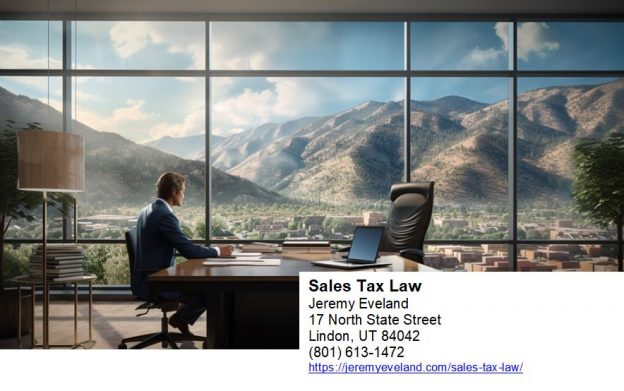Have you recently been involved in a car accident in the state of Utah? If so, you may be wondering whether or not it’s necessary to hire a lawyer to help you navigate the legal complexities that can arise from such incidents. In this article, we will explore the benefits of hiring a lawyer in the aftermath of a car accident, and why having legal representation can greatly improve your chances of receiving the compensation you deserve. So, if you’re unsure about whether or not to seek legal guidance, keep reading to learn more about how a lawyer can assist you during this difficult time.

Do You Need a Lawyer After a Car Accident?
Being involved in a car accident can be a stressful and overwhelming experience. In such situations, it’s crucial to understand the importance of seeking legal representation. Hiring a lawyer who specializes in car accidents can provide you with the guidance and support you need during this challenging time. This article aims to outline the key factors to consider when deciding whether you need a lawyer after a car accident and the benefits that come with hiring legal representation.
Understanding the Importance of Legal Representation
Car accidents can result in various legal complexities, including dealing with insurance companies, determining fault and liability, and calculating damages. Having a lawyer by your side can help you navigate through these intricacies and ensure that your rights are protected throughout the process. A skilled attorney can provide you with expert advice, advocate for your best interests, and help you obtain the compensation you deserve.
When Should You Consider Hiring a Lawyer?
While not every car accident requires legal representation, there are certain situations in which it is highly recommended to seek the assistance of a lawyer. If you find yourself in any of the following scenarios, it’s crucial to consider hiring an attorney:
-
Serious injuries or fatalities: If you or someone involved in the accident has sustained severe injuries or if the accident has led to a fatality, consulting with a lawyer is essential. They can help you navigate the legal process and ensure you receive proper compensation for medical expenses, loss of income, and other damages.
-
Disputed liability: If the fault for the accident is being contested or if multiple parties are involved, it’s wise to have a lawyer on your side. They can thoroughly investigate the incident, gather evidence, and help establish fault and liability.
-
Complex legal procedures: Car accident cases can involve complex legal requirements, filing deadlines, and paperwork. Having an experienced lawyer can ensure that all necessary steps are taken correctly and in a timely manner.
-
Insurance claim denial: If your insurance company denies your claim or offers an insufficient settlement, it may be necessary to seek legal assistance. An attorney can help negotiate with the insurance company and fight for a fair resolution.
Factors to Consider Before Hiring a Lawyer
Before deciding to hire a car accident lawyer, several factors should be taken into consideration:
-
Severity of damages: Assess the extent of damages, both physical and financial, resulting from the accident. If the damages are significant and are impacting your quality of life, it may be beneficial to seek legal representation.
-
Financial resources: Consider your own financial situation and evaluate whether hiring a lawyer is feasible. Many car accident lawyers work on a contingency fee basis, meaning they only get paid if they secure a settlement or win your case.
-
Time limitations: Remember that there are statutes of limitations for filing car accident lawsuits. It’s crucial to be aware of these time limits and ensure that you seek legal advice within the required timeframe.
Benefits of Hiring a Lawyer
Hiring a lawyer after a car accident can provide numerous benefits that can significantly impact the outcome of your case. Let’s explore some of these benefits in detail:
Ensuring Proper Evaluation of Damages
One of the key advantages of hiring a car accident lawyer is their expertise in evaluating the damages you have suffered. They can assess the complete extent of your injuries, including both immediate and long-term medical expenses. With this information, they can accurately determine the appropriate amount of compensation you should seek from the responsible party.
Navigating Insurance Claims
Dealing with insurance companies can be daunting and overwhelming, particularly when you are already dealing with the aftermath of a car accident. A skilled attorney can handle all communications with the insurance company on your behalf, ensuring that your rights and interests are protected throughout the claims process.
Maximizing Compensation
A car accident lawyer has the experience and knowledge necessary to negotiate with insurance companies and other parties involved. They will work to maximize your compensation, taking into account not only your immediate medical expenses and property damage but also other factors such as potential future medical costs, loss of income, and pain and suffering.
Dealing with Legal Paperwork
Car accident cases often involve extensive paperwork, including medical records, police reports, and insurance forms. An attorney can assist you in organizing and submitting all the necessary documentation correctly and within the required timeframes. This ensures that the legal process moves forward smoothly and efficiently.
Assessing Fault and Liability
Determining fault and liability after a car accident can be challenging, especially in cases involving multiple parties or disputed liability. A skilled lawyer has the expertise to investigate the accident thoroughly, gather evidence, and analyze police reports to establish fault. They can also interview witnesses and engage expert witnesses when necessary to strengthen your case.
Determining Fault and Liability
After a car accident, one of the crucial tasks is determining fault and liability. This involves gathering evidence, analyzing police reports, interviewing witnesses, and, in some cases, engaging expert witnesses. Let’s take a closer look at these steps:
Gathering Evidence
Collecting evidence is vital in establishing fault after a car accident. This includes taking photographs of the accident scene, documenting vehicle damage, and obtaining contact information from any witnesses present. It’s important to gather as much evidence as possible to support your case.
Analyzing Police Reports
Police reports are an essential source of information when determining fault and liability. A car accident lawyer can carefully analyze the report to understand the facts of the accident, the statements made by involved parties, and any citations issued. This analysis can help build a strong case on your behalf.
Interviewing Witnesses
Eyewitness accounts play a critical role in determining fault and liability. A car accident lawyer can interview witnesses to obtain their version of events and gather additional information that may be relevant to your case. Witness testimony can significantly impact the outcome of your claim.
Engaging Expert Witnesses
In some complex car accident cases, engaging expert witnesses may be necessary. These experts can provide specialized knowledge and opinions regarding accident reconstruction, vehicle malfunction, or other technical aspects related to the incident. Their testimony can strengthen your case and help establish fault and liability.
Understanding Insurance Companies
Dealing with insurance companies is an inevitable part of the car accident claim process. It’s essential to understand how to navigate these interactions effectively to ensure a fair outcome. Let’s explore some key aspects of dealing with insurance companies:
Negotiating with Insurance Adjusters
Insurance adjusters are responsible for evaluating claims and determining settlement offers. However, their primary goal is to minimize the amount of money the insurance company has to pay. Having a car accident lawyer on your side can level the playing field during negotiations, ensuring that you receive a fair settlement offer.
Avoiding Low Settlement Offers
Insurance companies may try to offer low settlement amounts in the hopes that you’ll settle quickly and for less than you deserve. An experienced attorney knows how to evaluate the true worth of your claim and can help you reject inadequate settlement offers.
Dealing with Insurance Company Tactics
Insurance companies may employ various tactics to undermine your claim. They may try to shift blame onto you, question the extent of your injuries, or use other strategies to diminish your case’s value. A knowledgeable lawyer can help you navigate these tactics and protect your rights.
Calculating Damages
Determining the appropriate amount of compensation for the damages you have suffered can be a complex task. A car accident lawyer can help you calculate damages accurately by considering the following factors:
Assessing Medical Expenses
Medical expenses resulting from a car accident can be substantial, including emergency medical care, hospital stays, surgeries, rehabilitation, and ongoing treatment. An attorney will work closely with medical professionals to assess these expenses thoroughly and seek the appropriate compensation.
Evaluating Property Damage
In addition to medical expenses, a car accident can result in significant property damage. This includes damage to your vehicle, personal belongings, and any other property involved in the accident. A lawyer can help you evaluate the extent of your property damage and seek appropriate compensation for repairs or replacement.
Estimating Loss of Income
If your injuries prevent you from working or require you to take time off, you may experience a loss of income. A car accident attorney can calculate the wages you have lost or will continue to lose as a result of the accident. They will also consider future earning potential if your injuries result in long-term impairment or disability.
Considering Pain and Suffering
Car accidents often cause physical pain and emotional suffering. Compensation for pain and suffering is intended to address the psychological and emotional toll the accident has taken on your life. An experienced lawyer can help quantify these damages and fight for appropriate compensation.
Understanding Punitive Damages
In certain cases where the at-fault party’s conduct is particularly egregious, punitive damages may be awarded. These damages are intended to punish the responsible party and deter similar behavior in the future. A car accident lawyer can advise you on whether punitive damages may be applicable in your case.
Contingency Fees and Financial Considerations
Many car accident lawyers work on a contingency fee basis, meaning that they only collect fees if they secure a settlement or win your case. Understanding this fee arrangement and other financial considerations is crucial before hiring a lawyer:
Understanding Contingency Fee Arrangements
A contingency fee arrangement allows you to hire a lawyer without having to pay any upfront costs. Instead, they receive a percentage of your settlement or court award as their fee. This fee structure ensures that your lawyer is highly motivated to achieve the best possible outcome for your case.
Evaluating Attorney Fees and Costs
When consulting with potential car accident lawyers, it’s essential to discuss their fee structure and any associated costs. Understanding the percentage the lawyer will take from your settlement and any additional expenses can help you make an informed decision about hiring legal representation.

When to Seek Legal Advice
While not every car accident requires hiring a lawyer, there are specific situations where seeking legal advice is highly advisable. Consider contacting a car accident attorney if you find yourself in any of the following circumstances:
Serious Injuries or Fatalities
If you or someone involved in the car accident has suffered severe injuries or, tragically, if a fatality has occurred, having legal representation is crucial. A lawyer can help you navigate through the complexities of your claim and ensure that you receive appropriate compensation for your losses.
Disputed Liability
If the at-fault party disputes their liability or multiple parties are involved, it’s essential to consult with a car accident attorney. They can investigate the accident, gather evidence, and help establish fault, ensuring that your rights are protected throughout the process.
Complex Legal Procedures
Car accident cases involve various legal requirements and procedures. If you feel overwhelmed by the complexities of your situation, it’s advisable to seek the guidance of an experienced attorney. They can ensure that all necessary steps are taken correctly and that your claim is handled efficiently.
Insurance Claim Denial
If your insurance company denies your claim or offers an insufficient settlement, it’s important to consult a car accident lawyer. They can review your case, negotiate with the insurance company on your behalf, and fight for the fair compensation you deserve.
Steps to Take After a Car Accident
Knowing the right steps to take immediately after a car accident is crucial for protecting your rights and ensuring a smooth claims process. Consider the following actions:
Seeking Medical Attention
Your health and safety should be your top priority after a car accident. Even if your injuries appear minor, it’s critical to seek medical attention to identify any underlying issues and ensure proper documentation of your injuries.
Contacting Law Enforcement
Call the police immediately after the accident, even if it seems minor. A police report can provide valuable evidence when determining fault and liability. Cooperate fully with law enforcement while providing an accurate account of the incident.
Gathering Information at the Scene
Collect as much information as possible at the accident scene. This should include the contact details of all involved parties, insurance information, and the names and contact information of any witnesses. Additionally, document the scene by taking photographs of vehicle damage, road conditions, and any other evidence.
Documenting Damages and Injuries
Keep detailed records of any damages or injuries sustained as a result of the accident. This includes photographs of your injuries, receipts for medical expenses, and any other documentation relevant to your claim.
Notifying Your Insurance Company
Contact your insurance company and report the accident as soon as possible. Provide them with the necessary details while being truthful and accurate to protect your rights.

How to Choose the Right Car Accident Lawyer
Choosing the right car accident lawyer is crucial for the success of your case. Consider the following factors when selecting legal representation:
Checking Experience and Expertise
Look for a lawyer with extensive experience in handling car accident cases. Inquire about their track record and their familiarity with the local legal system. An attorney with a specialization in car accidents will have the expertise and knowledge necessary to navigate your case effectively.
Evaluating Track Record
Review the lawyer’s past cases to determine their success rate. This can give you an indication of their ability to handle your case successfully. A lawyer with a strong track record of obtaining significant settlements or verdicts is more likely to deliver favorable results for your claim.
Reading Client Reviews
Take the time to read reviews and testimonials from past clients. This can provide valuable insights into the lawyer’s professionalism, communication style, and dedication to client satisfaction. Positive feedback from previous clients is a good indication of a lawyer’s competence and reliability.
Assessing Communication Skills
Good communication between you and your lawyer is essential throughout the legal process. During initial consultations, assess the lawyer’s ability to listen attentively, explain complex legal concepts clearly, and promptly respond to your questions and concerns.
Considering Personal Compatibility
Your relationship with your lawyer will likely extend over an extended period. It’s important to choose someone with whom you feel comfortable working. Consider their personality, level of empathy, and dedication to supporting you throughout the process.
Frequently Asked Questions
-
Do I need a lawyer after a minor car accident? Even after a minor car accident, it’s advisable to consult with a lawyer. They can guide you through the insurance claim process, ensure you understand your rights, and help you navigate any complexities that may arise.
-
How can a lawyer help me with my insurance claim? A car accident lawyer can handle all communications with the insurance company, gather necessary documentation, and negotiate on your behalf. They can help ensure that you receive fair compensation for your damages and advocate for your best interests.
-
What factors should I consider before hiring a car accident lawyer? Before hiring a lawyer, consider the severity of your damages, your financial resources, and any time limitations for filing a claim. Additionally, evaluate the lawyer’s experience, track record, and communication skills to ensure they are the right fit for your case.
-
How much do car accident lawyers charge? Many car accident lawyers work on a contingency fee basis, meaning they only collect fees if they successfully secure a settlement or win your case. Prior to hiring a lawyer, discuss their fee structure and any associated costs.
-
What steps should I take immediately following a car accident? After a car accident, seek medical attention, contact law enforcement, gather information at the scene, document damages and injuries, and notify your insurance company. Taking these steps can help protect your rights and ensure a smooth claims process.
In conclusion, hiring a car accident lawyer can provide invaluable support and guidance after a car accident. They can help navigate the complexities of insurance claims, establish fault and liability, and ensure proper compensation for your damages. By consulting with a lawyer experienced in car accident cases, you can have peace of mind knowing that your rights are protected and that you have a strong advocate fighting for your best interests.




















